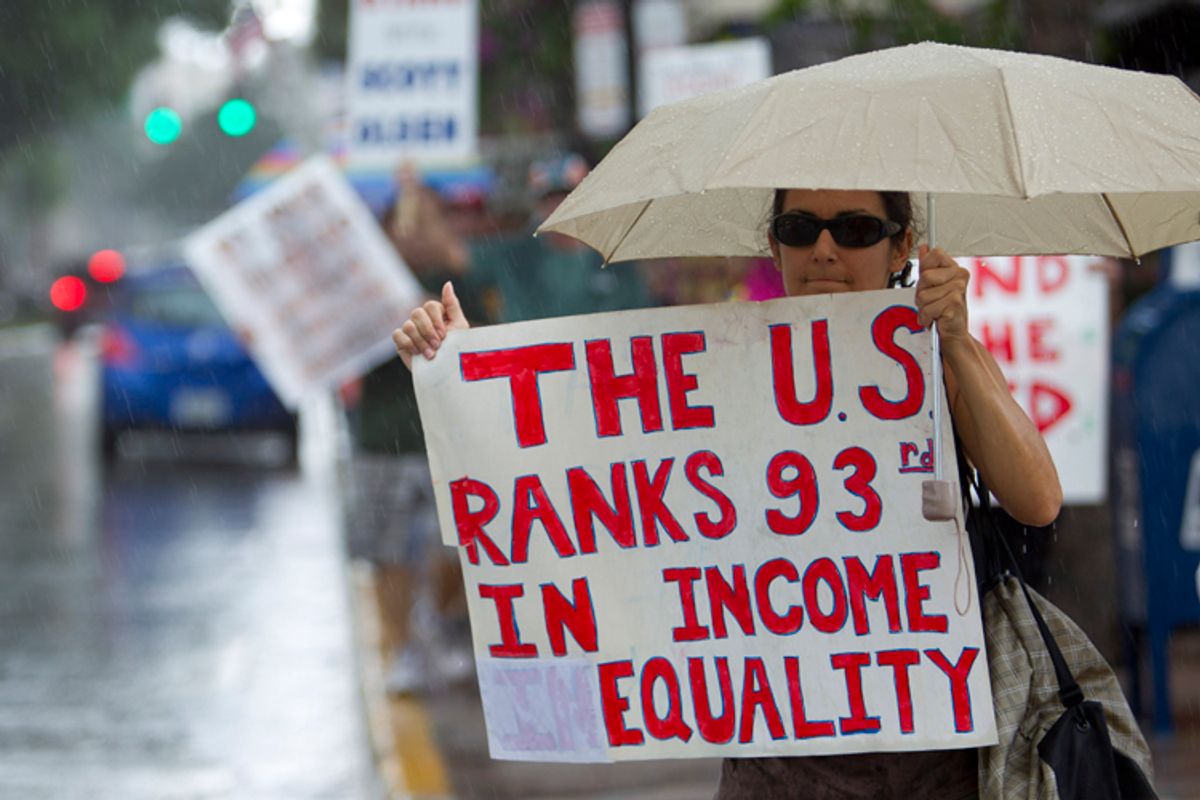The American Dream has long been that each generation can do better than their parents. Unfortunately, rising income inequality in America has made this less true for Americans in the 2010s than has been the case for any generation since the Great Depression.
"Children's prospects of achieving the 'American Dream' of earning more than their parents have fallen from 90 percent to 50 percent over the past half century," said Stanford economist Raj Chetty, co-author of the Equal Opportunity Project study. "This decline has occurred throughout the parental income distribution, for children from both low and high income families."
Notably, the economists found that lack of mobility is particularly prevalent in the Rust Belt states where Donald Trump prevailed over Hillary Clinton.
The research determined two main causes for the loss of economic mobility. Because economic growth has slowed over the past few decades, there is simply less in the way of income and other resources for newer generations than existed for their predecessors. More importantly, though, income inequality continues to rise at a startling rate, meaning that most of the new income which is generated winds up going to the small number of people whose economic positions are already secure. The study concluded that inequality accounted for more than 70 percent of the decline in economic mobility.
Thankfully, not all of the news was bleak.
"The fading of the American Dream is not immutable," the Equal Opportunity Project concludes. "There are cities throughout America — such as Salt Lake City and Minneapolis — where children's chances of moving up out of poverty remain high. Cities with high levels of upward mobility tend to have five characteristics: lower levels of residential segregation, a larger middle class, stronger families, greater social capital, and higher quality public schools."

Shares